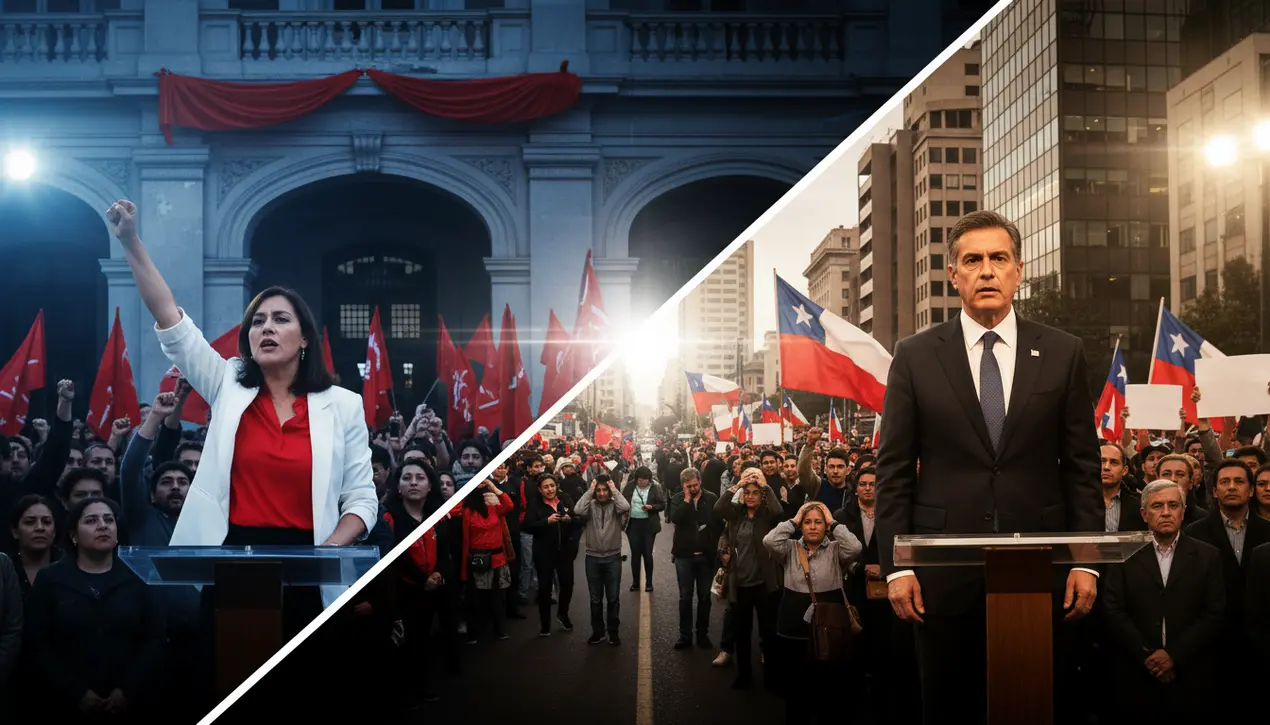
PoliticselectionsPresidential Elections
Chile's polarized presidential runoff pits far-right against communist candidate.
RO
Robert Hayes
19 hours ago7 min read
Chile stands at a profound historical precipice, its political landscape fractured into two starkly opposing visions for the nation's future following a first-round electoral contest that has set the stage for a deeply polarized presidential runoff. Former labor minister Jeannette Jara, a stalwart communist and standard-bearer for a broad left-wing coalition, secured a narrow lead with just under 27% of the vote, a result that signals a resilient, though not dominant, mandate for her platform of profound structural reform and a continuation of the ambitious, if contentious, constitutional rewrite process.Her advancement, alongside that of a far-right former lawmaker who captured a significant portion of the electorate, is not merely a political contest; it is a dramatic re-enactment of the ideological battles that have long simmered beneath the surface of Chilean society, echoing the Cold War-era schisms that once defined the hemisphere. This runoff is the direct consequence of a nation grappling with the legacy of its neoliberal economic model, established during the Pinochet dictatorship, and the powerful social uprising of 2019 that demanded a more equitable society—a demand that the current leftist government has struggled to fully actualize amidst inflation and security concerns.The far-right candidate's strong showing capitalizes on this discontent, channeling voter anxiety into a law-and-order, pro-business message that resonates with those fearing economic instability and the perceived excesses of the left's agenda. Analysts are already drawing parallels to other global political arenas where centrist consensus has collapsed, leaving a vacuum filled by populist extremes, a dynamic that Chile, long considered a bastion of stability in Latin America, now confronts with immense consequence.The coming weeks will be a brutal test of political machinery and messaging, with each candidate seeking to poach voters from the eliminated centrist factions, whose supporters now hold the balance of power in a nation deeply unsure of its direction. The implications extend far beyond Chile's borders, serving as a critical bellwether for regional powers like Brazil and Argentina, where similar ideological tugs-of-war are underway, and for international markets watching nervously to see if the world's top copper producer will lurch toward state intervention or reaffirm its capitalist traditions. The very soul of the nation is on the ballot, and the outcome will either cement a new progressive chapter or signal a forceful conservative restoration, a decision with ramifications that will be studied by historians and strategists for decades to come.
#Chile
#presidential election
#runoff
#far-right
#communist
#polarization
#featured
Stay Informed. Act Smarter.
Get weekly highlights, major headlines, and expert insights — then put your knowledge to work in our live prediction markets.
Related News
Comments
Loading comments...
© 2025 Outpoll Service LTD. All rights reserved.